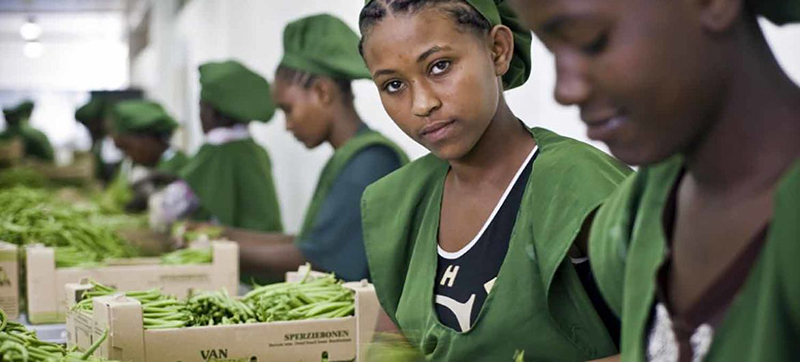 ILO
ILO
Rising inflation, falling wages threaten increased poverty and unrest: ILO
New York: Rising inflation has caused a striking decline in real monthly wages in many countries, the International Labour Organization (ILO) said in a report published on Wednesday, highlighting the urgent need for policies to prevent further poverty, inequality and social unrest.
Global monthly wages fell in real terms to -0.9 per cent in the first half of the year, the study found, marking the first instance of negative growth this century.
As a result, the purchasing power of middle-class families has been reduced, while low-income households have been hit particularly hard.
Tens of millions affected
“The multiple global crises we are facing have led to a decline in real wages. It has placed tens of millions of workers in a dire situation as they face increasing uncertainties,” said Gilbert F. Houngbo, the ILO Director-General, warning of the potential consequences.
“Income inequality and poverty will rise if the purchasing power of the lowest paid is not maintained,” he said. “In addition, a much-needed post-pandemic recovery could be put at risk. This could fuel further social unrest across the world and undermine the goal of achieving prosperity and peace for all.”
Converging crises
The Global Wage Report 2022-2023 reveals how the severe inflationary crisis, combined with a slowdown in economic growth - driven in part by the war in Ukraine and the global energy crisis - have affected pay packets worldwide, including in the G20 leading industrial nations.
It is estimated that in the first half of the year, real wages declined to -2.2 per cent in advanced G20 countries and grew by 0.8 per cent in emerging G20 countries. This is 2.6 per cent less than in 2019, the year prior to the COVID-19 pandemic.
Impact of inflation
Inflation rose proportionately faster in high-income countries, according to the report, which also includes regional and country data.
For example, in Canada and the United States, average real wage growth dropped to zero in 2021, and then fell to -3.2 per cent in the first half of this year.
During the same period, Latin America and the Caribbean saw real wage growth decline to -1.4 per cent, and then to -1.7 per cent.
Meanwhile, real wage growth increased to 3.5 per cent last year in Asia and the Pacific in 2021 but slowed to 1.3 per cent during the first six months of this year.
However, when China is excluded, growth increased by 0.3 per cent and 0.7 per cent, respectively.
Support working families
Rising inflation has had greater impact on poorer families, as most of their disposable income is spent on essential goods and services which generally experience greater price increases compared to non-essential items.
In many countries, inflation is also eroding the real value of minimum wages, the report further noted.
The ILO has underscored the urgent need for well-designed policy measures to help wage workers and their families maintain their purchasing power and living standards.
They are critical to prevent the deepening of existing levels of poverty, inequality and social unrest.
“We must place particular attention on workers at the middle and lower end of the pay scale,” said Rosalia Vazquez-Alvarez, one of the report’s authors.
“Fighting against the deterioration of real wages can help maintain economic growth, which in turn can help to recover the employment levels observed before the pandemic. This can be an effective way to lessen the probability or depth of recessions in all countries and regions.”
Social dialogue and solutions
One effective tool could be adequate adjustment of minimum wage rates, said the ILO, given that 90 per cent of its 187 Member States have minimum wage policies in place.
Collective bargaining and “strong tripartite social dialogue” – that is, between government, employers and workers representatives – also can help to achieve adequate wage adjustments during a crisis.
Other recommendations include measures that target specific groups, such as providing vouchers to low-income households so they can purchase essential goods, or cutting Value Added Tax (VAT) on these items which will reduce the burden inflation places on households while also helping to bring down inflation generally.
Support Our Journalism
We cannot do without you.. your contribution supports unbiased journalism
IBNS is not driven by any ism- not wokeism, not racism, not skewed secularism, not hyper right-wing or left liberal ideals, nor by any hardline religious beliefs or hyper nationalism. We want to serve you good old objective news, as they are. We do not judge or preach. We let people decide for themselves. We only try to present factual and well-sourced news.







